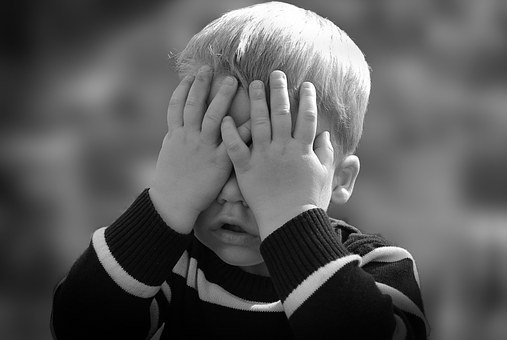As a youngster, one of our sons closed his eyes tightly when sneaking a cookie, reasoning that if he couldn’t see us, we couldn’t see him! We understood his rationale–“hiding” what his hand was doing. Though cute, he was wrong.
 When we know we’re in the wrong, we hide it. We find this human reaction at humanity’s beginning. Adam and Eve hid from God after having eaten the forbidden fruit. They hid to avoid having their sin discovered (Genesis 3).
When we know we’re in the wrong, we hide it. We find this human reaction at humanity’s beginning. Adam and Eve hid from God after having eaten the forbidden fruit. They hid to avoid having their sin discovered (Genesis 3).
That fearful behavior continued through generations. Most notably, King David “hid” his multifaceted sin with Bathsheba by secretly forcing her husband, Uriah, to the front battle lines then leaving him unprotected to be killed (2 Samuel 11). Jonah disobediently ran away from God’s call, hiding out in a ship to avoid Him.
 All of this hiding points to the fact that we know we’re guilty! Romans 3:23 puts it this way, For all have sinned and fallen short of the glory of God.
All of this hiding points to the fact that we know we’re guilty! Romans 3:23 puts it this way, For all have sinned and fallen short of the glory of God.
Everyone sins. It’s a fact. We simply don’t know what to do about it.
Consequently, living with a guilty conscience is the biggest burden most people carry through life. However, we weren’t created to shoulder that heavy load. So psychologists now push a dubious panacea to this universal problem. Their answer? Declare nothing sinful. If something feels good, they insist there’s no reason for regret. By eliminating the concept of sin, there’s ostensibly no basis for shame.
The problem? Our God-given conscience will not leave us alone. After David hid his sin involving Bathsheba and Uriah he wrote, “When I kept silent about my sin, my body wasted away through my groaning all day long.” David felt physically ill with shame.
Some ministers contend the majority of counseling deals with guilt-based issues, and they view guilt as the root of many health problems. Awareness of our wrongdoings gnaws away at us.
 Guilt, shame, and regret all demand a payment and resolution. Punishing ourselves (through self-condemnation, perfectionism, penance) won’t work–though we usually attempt these methods. What we actually long for is forgiveness.
Guilt, shame, and regret all demand a payment and resolution. Punishing ourselves (through self-condemnation, perfectionism, penance) won’t work–though we usually attempt these methods. What we actually long for is forgiveness.
That’s why Jesus took care of both payment and forgiveness for all who believe on Him. On the cross He was punished on our behalf, praying, “Father, forgive them.” He took our past, present and future sins upon Himself—the perfect one-time sacrifice for all people, for all time (Hebrews 10:11-18).
 But that doesn’t mean we always feel forgiven. And to compound the problem, the devil accuses us night and day, tempting us to hide from God and each other.
But that doesn’t mean we always feel forgiven. And to compound the problem, the devil accuses us night and day, tempting us to hide from God and each other.
However, Romans 8:1 reminds us,
There is therefore now no condemnation for those who are in Christ Jesus.
God wants us more mindful of His forgiveness than we are of the devil’s accusations. God’s forgiveness eternally outweighs any charges brought against us. And while confessing our wrongdoings to one another and asking forgiveness from those we’ve hurt helps clear the conscience, we need to remember one overriding truth in the face of guilt:
 Jesus died to remove our shame. There’s no need to hide.
Jesus died to remove our shame. There’s no need to hide.

